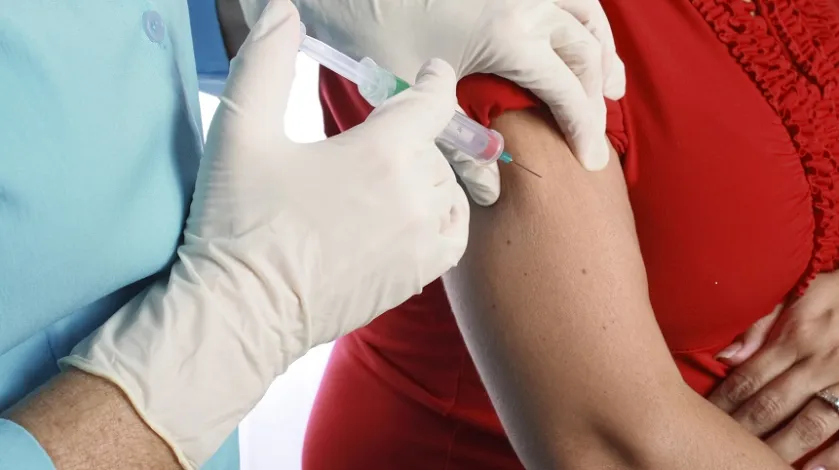COVID Cases Are Rising: Is a Winter Wave on the Way?
Author

Todd Ellerin, MD, Director of Infectious Disease
Following a few quiet months on the COVID front, cases are on the rise again nationally, for the first time since last summer’s FLiRT variants were circulating.
Centers for Disease Control and Prevention (CDC) data in early January shows that COVID test positivity rates have reached 6.9% nationally and 7.9% in Massachusetts.
COVID-related emergency room visits have also been increasing across the U.S. and wastewater viral activity – another indicator that infections are on the rise – has returned to high levels nationally; very high levels in Massachusetts.
In past years, these trends have proven to be precursors to a seasonal surge. Is another winter wave of COVID coming?
We asked South Shore Health’s Director of Infectious Disease Todd Ellerin, MD, what we might expect this season from COVID-19, respiratory syncytial virus (RSV), influenza and other respiratory illnesses.
How concerned should we be about another seasonal spike of COVID-19?
We have become all too familiar with seasonal (summer and winter) spikes of COVID-19, and this winter is no different. New variants are circulating and driving the increase in both wastewater viral activity and infections.
How concerned an individual should be depends on many factors, including their age, any comorbidities or immunocompromising conditions they have, past experience with COVID illness, vulnerable household contacts, and personal or proximal experience with long COVID.
The silver lining to recent spikes is that they do not cause anywhere near as many hospitalizations and deaths as COVID surges did earlier in the pandemic, when we had less population immunity through prior infections and immunizations.
Will the 2024/25 COVID-19 vaccine protect against XEC – the dominant variant circulating now?
As with past iterations of the COVID vaccine, the current shot protects against severe illness and hospitalizations.
Because COVID-19 mutates so rapidly, the latest mRNA vaccines by Moderna and Pfizer are based on KP.2, last summer’s dominant strain, and the Novovax vaccine is based on the JN.1 variant that circulated right before KP.2.
However, since the XEC strain is a combination of two prior Omicron subvariants, and all 2024/25 COVID vaccines are based on Omicron strains, we remain confident they will reduce severe illness and may also result in milder symptoms from infection.
Are there any new COVID-19 symptoms associated with the XEC variant?
Symptoms from the current COVID variant XEC are similar to, and no more severe than those from past virus strains.
COVID symptoms can include fever, chills, dry cough, shortness of breath, sore throat, congestion or runny nose, loss of taste or smell, fatigue, body aches, headache, nausea, vomiting, and diarrhea, according to the CDC.
How is this season trending for RSV and influenza? Is it too late to get a flu shot or RSV vaccine?
Like COVID-19, seasonal influenza activity is at elevated levels across much of the country and flu-related emergency room visits are currently very high.
It is not too late to get a flu shot and it is especially important for high-risk groups – including older adults and very young children, immunocompromised individuals, pregnant women, and anyone with chronic conditions such as lung, heart, kidney, or liver disease, obesity, or diabetes.
Patients 65 years of age or older should ask for the high dose influenza vaccine or adjuvanted influenza vaccine, which helps create a stronger immune response in those vaccinated.
Emergency department visits for RSV are also very high nationally. High-risk people ages 60-74 years, and anyone 75 years and older should receive a single dose of RSV vaccine. Unlike influenza and COVID vaccines, the RSV vaccine is not an annual shot; it’s a one-time dose. If you have already received an RSV vaccine, you do not need another one this season.
Women in the third trimester of pregnancy (32-36 weeks) during RSV season should receive the RSV vaccine to reduce the risk of severe illness in their infants. Babies born during the RSV season, whose mothers have not received the RSV vaccine during late pregnancy, should receive a single dose of intramuscular Nirsevimab, a monoclonal antibody effective at reducing severe RSV illness in infants and vulnerable young children.
What is mycoplasma and how does it differ from other respiratory illnesses?
Mycoplasma, also known as “walking pneumonia” is a respiratory bacterial infection that has been surging in the U.S., especially among young children.
Difficult to diagnose because its symptoms are indistinguishable from respiratory viral infections, mycoplasma can cause mild pneumonia in children and adults. With only mild symptoms, those infected may not stay home from work or school, which is why mycoplasma is often referred to as “walking pneumonia.”
Mycoplasma is diagnosed through molecular PCR testing rather than a throat culture, and is treated with the antibiotics Azithromycin or Doxycycline (for older children).
Why did the CDC lower the age recommended for pneumococcal vaccination and should everyone over age 50 now get the shot?
Pneumococcus, also known as strep pneumonia is the most common cause of bacterial pneumonia, an illness that can be deadly for young children, and older adults – particularly those with chronic health conditions or compromised immunity.
More invasive forms of pneumococcal disease can lead to serious illnesses such as meningitis, an inflammation of the lining of brain, and bloodstream infections like sepsis.
Fortunately, there are effective vaccines – including PCV-20 and the recently approved PCV-21 – that reduce the risk of invasive strep pneumonia.
By lowering the age recommended for vaccination, many more older adults can protect against severe illness from pneumococcal disease at an age when the risk of infection substantially increases. The change also benefits Black adults, who are more likely to have pneumococcal pneumonia at a younger age.
The takeaway is if you are 50 years or older and you have not received a pneumococcal vaccine, go get the shot from your healthcare provider or at a retail pharmacy. Healthy adults usually only require one dose of the pneumococcal vaccine for long-term protection.
How can I protect against respiratory viruses and stay well this winter?
Vaccines continue to be our best defense against severe illness from respiratory viruses like COVID-19, influenza, pneumonia, and RSV.
Because immunity wanes over time and COVID-19 rapidly mutates, staying up to date on immunizations is important, particularly for high-risk individuals.
Other preventative steps you can take include:
- Washing your hands frequently
- Covering your coughs and sneezes
- Staying home when you’re sick until you are fever free
- Wearing a mask
- Improving indoor ventilation
You can learn more about preventing respiratory illnesses on the CDC website.
Todd B. Ellerin, MD is Director of Infectious Disease at South Shore Health.
Author

Todd Ellerin, MD, Director of Infectious Disease








